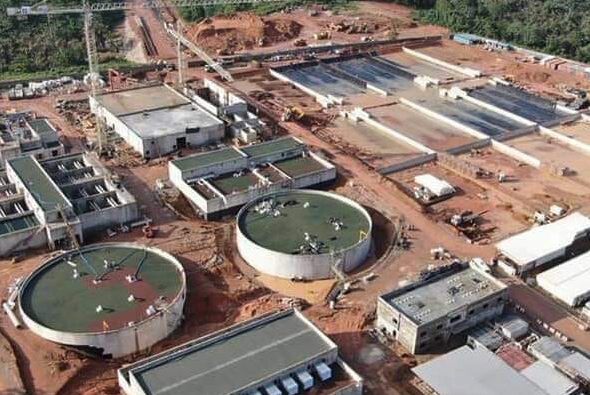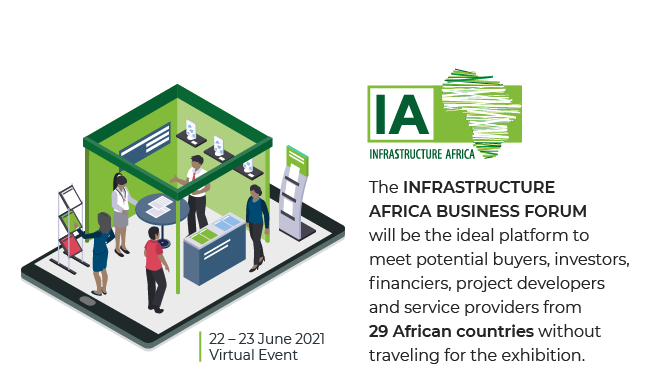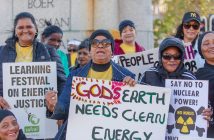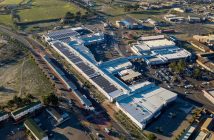- La Mé water treatment plant in Côte d’Ivoire is expected to be fully commissioned in July this year.
- This was announced last week by Laurent Tchagba, the Ivorian Minister of Hydraulics at the end of a tour of the districts of Abobo PK18 and Abobo Anonkoua Kouté Extension that are facing drinking water shortages.
During the tour the minister observed that the construction works for the project, which is designed and supervised by Veolia, are almost complete. The project is a venture between Veolia and PFO Africa with funding provided by the West African Development Bank (BOAD).
The drinking water treatment plant is built on an 8-hectare site. It has a planned capacity of 240,000 m3 per day. The treated water in this facility will be pumped from the nearby La Mé River, thanks to a water intake put up on a hectare site. After treatment, the drinking water will be transported via a 1,400-diameter pipeline over a length of 28 km to two water towers of 5,000 m³ each from where it will then be piped to end users.
Related news: Uganda to commission largest waste water treatment plant in East Africa
This project will directly meet the drinking water needs of several councils in the north of Abidjan, the capital city of the West African country, including Cocody, Abobo, and Yopougon, as well as in the east. It will also allow more sustainable management of the aquifer around the city preventing both the depletion and pollution of groundwater resources.
Author: Bryan Groenendaal
Water treatment plants will be a hot topic at Infrastructure Africa:












